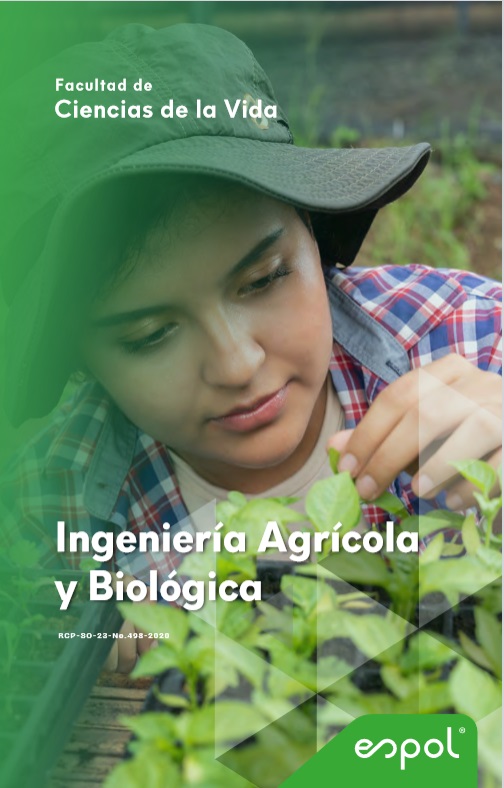
Agricultural & Biological Engineering
The Agricultural and Biological Engineering program trains professionals with high scientific and technological skills, in three areas of agriculture: Agricultural Biotechnology, Sustainable Agriculture and Agricultural Economics, with a high sense of social responsibility towards the community.
Mission
We contribute to society by training professionals who have the capacity to manage agricultural production units and connect research with their respective fields of expertise.
Vision
To be a reference in the education, research and innovation of agricultural and biological sciences.
* Undergraduate tuition/fees:
The Constitution of the Republic of Ecuador in its Article 356, among other principles, establishes that third-level public higher education will be tuition/fees free. Zero cost education is linked to the academic responsibility of the students.
Graphs show the figures in real time, at the time of the query
In the Agricultural and Biological Engineering program, we are looking for students who have the skills to generate and use information from the agricultural sector in a timely fashion. They should also possess the ability to manage interpersonal relationships and work effectively in teams, adaptability to work in both urban and rural settings, and a strong foundation in physics, chemistry, and mathematics. We expect our students to have a deep respect for life and biodiversity, as well as its conservation, in addition to qualities such as honesty, commitment, and social responsibility.
- To demonstrate competence in fundamental engineering skills and technical knowledge, as well as appropriate professional and personal skills for their profession in order to provide solutions in the agricultural field.
- To become active members of society, contributing to the community, industry, academia, public sector, and professional organizations, promoting sustainable and equitable development in the agricultural sector.
- To engage in entrepreneurial activities and/or assume management or leadership positions aimed at improving the quality of life in society
Upon completion of the 4-year program, students will be able to address local, national, and/or regional issues in the agricultural sector, relying on skills to design components, processes, and systems that are viable and sustainable.
Occupational Profile
Agricultural and Biological Engineering graduates are able to practice both, public and/or private sector, as well as in the academic-research field.
-They will be skilled to solve agricultural and forestry production problems.
-They will be able to contribute to the sustainable development of agricultural production and productivity, which allows the improvement of smallholder farmers.
-They will be capable to lead innovation and development projects focused on the agribussines sector, as well as research projects linked to the academy.
To attain the Bachelor of Science in Agricultural & Biological Engineering, the following requirements must be met:
- Approve a minimum of 52 credits of Professional Training.
- Approve a minimum of 26 credits of Basic Training.
- Approve a minimum of 22 credits of Human and Socioeconomic Training.
- Approve a minimum of 11 credits in Complementary Training and Itinerary.
- Provide evidence of a minimum of 240 hours of professional internship and 96 hours of community service work.
- Approve the graduation process, equivalent to 144 hours.
The Capstone Project is a culminating requirement for graduation. These projects provide students with the experience of applying acquired knowledge and skills to the needs of society, with a focus on sustainability.
The IDEAR Fair showcases all Capstone projects, offering students a valuable opportunity to showcase their work and hone soft skills such as communication and teamwork. It is also a space for students to network with potential clients and future employers.
Explore all of the Capstone projects completed by the Bachelor of Science in Agricultural & Biological Engineering program.
CAEP Program - Agricultural Jobs Abroad
Students who are about to graduate, as well as those who have recently graduated, have the opportunity to participate in paid internships abroad through the agreement with 'CAEP - Agricultural Jobs Abroad.' This program is exclusive to agricultural work and complements students' education by providing them with the opportunity to learn from the agricultural sector in developed countries and enhance their proficiency in English.
This document is in spanish:

